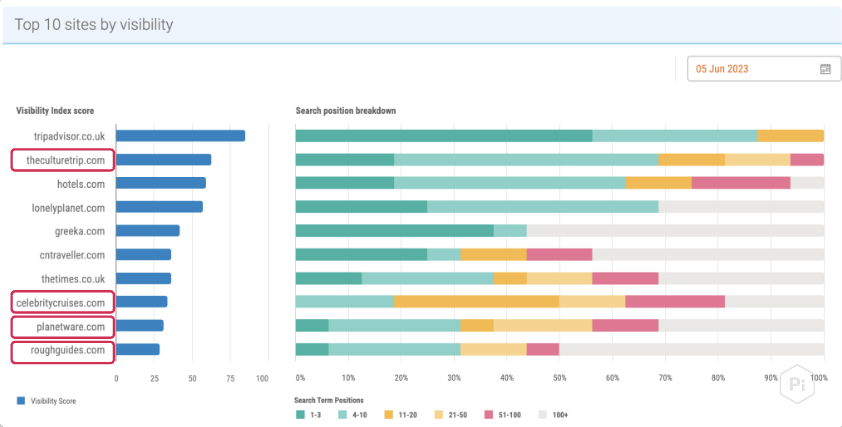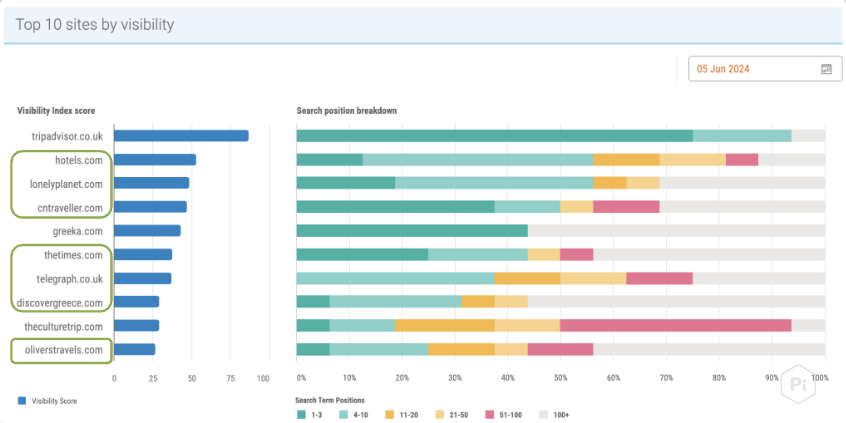24 Jun 2024|5 MIN READ
The world of search is undergoing a radical transformation. Traditional SEO strategies, heavily reliant on trophy keywords, are being challenged by the rise of voice search, Generative AI, and Conversational AI. These innovations are not just trends; they are redefining how users interact with technology and search engines. Integrated into billions of everyday devices—from smartphones to smart TVs—voice search is becoming a fundamental aspect of our digital lives. By 2024, it’s predicted that there will be over 8.4 billion devices equipped with voice assistants, surpassing the global population.
This shift presents a golden opportunity for brands and SEO professionals to capitalize on the new search paradigms. To thrive in this rapidly evolving landscape, we must go beyond traditional keywords and embrace the conversational nature of modern queries. Understanding what users are searching for, how they phrase their queries, and what results they want is now more crucial than ever.
In this blog post, we will explore four essential strategies to succeed in the SERP Multiverse:
1. Optimize for new search landscapes
In the evolving realm of search, we must move beyond traditional keyword strategies and embrace the future: voice search and conversational AI. The landscape is shifting from keyword-based queries to more natural, intent-driven conversations. As search engines become the world’s largest database of human intention, our SEO strategies must evolve accordingly.
Think beyond trophy terms
Gone are the days when succeeding in SEO was about targeting trophy terms – today’s search landscape prioritizes user intent and conversational language instead. Unlike traditional text-based queries, conversational queries are often longer, more specific, and reflective of how people naturally speak. These queries frequently start with “what,” “when,” “who,” “why,” “where,” and “how,” offering us a chance to create highly relevant, user-centric content that boosts on-page conversions and ranks well.
Voice search queries are inherently intent-driven, aiming for specific actions or information. To succeed, SEOs need to optimize content with long-tail, conversational keywords which reflect how people naturally speak. This approach involves thinking about the questions your audience might ask a voice-enabled device, or each other in everyday life. The goal is to build out content that answers these specific, spoken queries in a natural, conversational way.
Look Beyond the SERP Zero
Expanding organic visibility means exploring alternative SERP landscapes. The search results page you see varies greatly depending on the query nature and the search methods used. For instance, Google’s autocomplete function, which saves users significant typing time, represents countless alternative SERP pathways diverging from the original pathway the user would have gone down if they did not choose to use autocomplete.
Our own research shows that alternative SERP landscapes can be up to 95% different from the ones pursued with the original trophy keywords. Despite this, many SEOs remain fixated on keywords, missing out on visibility opportunities in alternate SERP landscapes.
This reveals a massive opportunity: by optimizing for these additional SERPs, businesses can vastly increase their visibility and revenue potential. The new search landscape isn’t just different in terms of results but also in its features, often aligning more closely with user intent. SEOs must look beyond SERP Zero to tap into the extensive opportunities available in increasingly diverse search environments. Using data from the Pi Datametrics platform, the below image shows the range of SERP features available for SERP Zero, and SERP One +.

💡 This blog post was inspired by our latest webinar “Mastering the SERP Multiverse: A 4-Step Blueprint for SEO Success” Watch now.
Mastering the SERP Multiverse_ A 4-Step Blueprint for SEO Success
2. Discover your real competitors
Outperforming your competitors remains crucial in SEO, but in the era of conversational and voice search, we must broaden our focus beyond traditional trophy terms. Visibility now depends on multiple SERP landscapes, which vary by query nature and timing.
To illustrate, we analyzed 500 keywords related to “best beaches by [location]” over the past year. A year ago, Culture Trip, Celebrity Cruises, PlanetWare, and Rough Guides were dominant in the top 10 most visible brands. Today, they have completely exited the top 10, replaced by Lonely Planet, Hotels.com, CNTraveller, and The Telegraph. Notably, The Telegraph surged over 14 positions, highlighting the effectiveness of their SEO strategy.
This shift underscores the dynamic nature of SEO competition. Your real competitors will vary depending on the specific search landscape and the point in time. As the search environment evolves, continuously monitor and adapt to stay ahead in the SERP multiverse.


📷 Image source: Pi Datametrics’ Visibility Index
3. Embrace the conversation
Conversational search presents clear opportunities for those who adapt. In partnership with the University of Hertfordshire, we conducted an observational study on voice search. The study revealed that:
- Longer and more complex (voice) queries almost always result in a more pleasing SERP or result
- There was a direct correlation between query length and respondents’ search results satisfaction scores
- Voice searches resulted in a higher propensity to purchase
These findings suggest that voice search is not only capable of delivering more satisfying and relevant search experience but also has a significant impact on user behavior, particularly in terms of driving higher conversion rates. This underscores the importance for brands and SEO professionals to optimize for voice search and incorporate longer, conversational queries into their ongoing SEO strategies.
A comparison of Lonely Planet’s visibility in June 2024, comparing 500 keywords and their conversational equivalents revealed a 74 percent drop in performance for the conversational equivalents. This further highlights the necessity for businesses to optimize for conversational search to maintain and enhance their visibility in the changing SERP multiverse.

📷 Image source: Pi Datametrics’ Visibility Index
4. Prepare for life beyond Google
Google has long ruled the roost as the world’s go-to search engine, but a brand new player is in town – Perplexity.
Perplexity enables you to perform much more detailed search queries in comparison to Google. It’s results, which are generated by AI come in the form of summaries with direct citations referencing the web sources referenced in the answer. It’s “copilot” feature refines user intent by asking additional questions, much like the functionality built into Google’s Search Generative Experience.
Perplexity did a fantastic job of answering my search query. I entered the search “I’m looking for somewhere to go in Spain for a family holiday this September I’m looking for somewhere that has the best beaches as well as good restaurants nice walks and is definitely not too touristy or crowded. This is especially important”
You can see that Perplexity has a number of factors to consider here, but does an exceptional job at interpreting this informational query, offering a comprehensive breakdown of suggested locations, highlighting beaches, restaurants, and walks, while citing over 20 sources.
Perplexity’s ability to understand and deliver detailed responses are a cut above the rest. While Google’s Generative AI Overviews have lots of potential, they’re currently lagging behind Perplexity in meeting the needs of longer-tail conversational searches.
As voice search and AI continues to transform the search landscape, adapting to these changes is crucial for maintaining and enhancing your organic search visibility. Embrace the shift towards conversational search, understand the evolving SERP dynamics, and explore opportunities beyond traditional search engines. By doing so, you’ll be well-equipped to thrive in the SERP multiverse.
👀 Looking for more content on AI in SEO? Take a look at our blog.
Never miss a post
Join our mailing list and have our SEO news delivered straight to your inbox.

